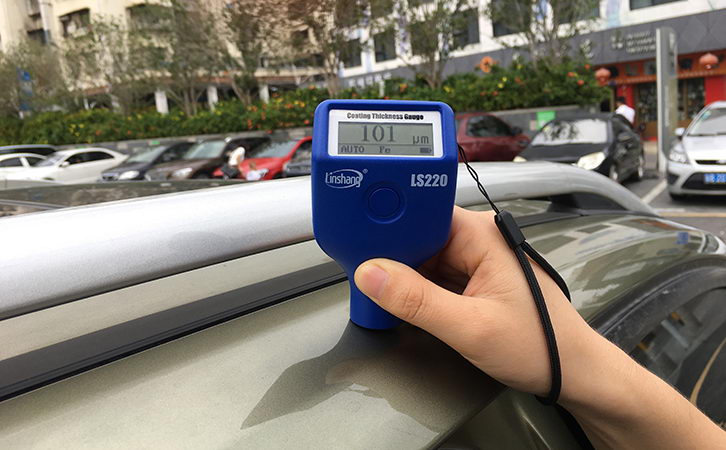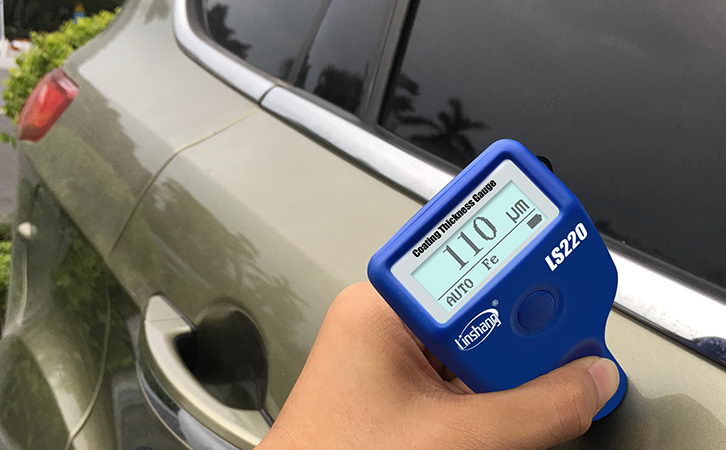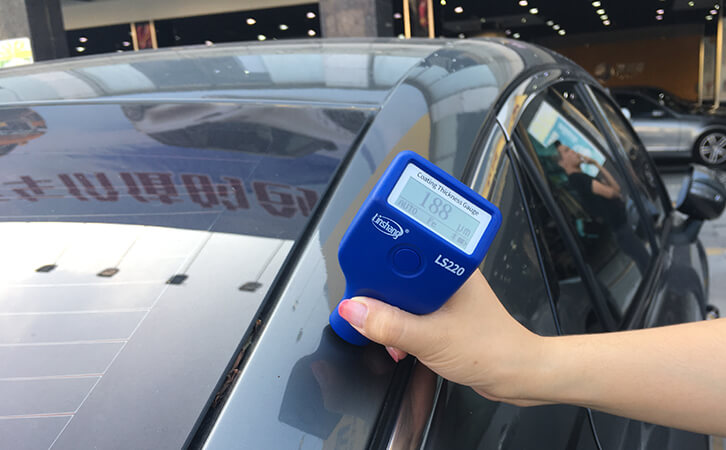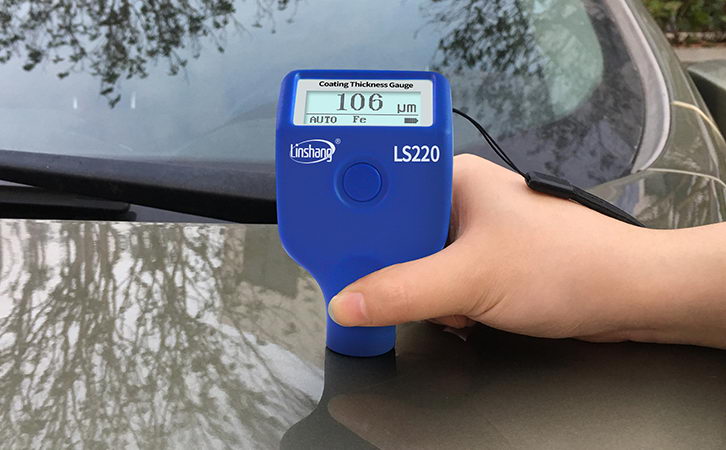Learn to Evaluate Used Car with Automotive Paint Meter
Automobiles have become a necessary means of transportation for every household and the used car industry has become increasingly popular. But when we buy second-hand cars, we should pay attention to the fact that used cars are non-standard products. The prices are generally very different. Pricing must be based on the condition of the car, so in the used car industry, price differs a lot. Even if it is the same model of the same year, there will be a certain difference in price.
The automotive paint meter can accurately determine the car paint thickness on the car surface to determine whether it has been painted or repaired with sheet metal, so as to evaluate the used car price. The automotive paint meter is one of the most indispensable equipment in the used car appraisal and evaluation industry. After all, data is true and convincing. Different brands of cars have different paint thicknesses. The original paint of a car is generally about 100μm and only some German cars have a paint thickness about 200μm.
I. So how to evaluate used car with automotive paint meter?
We all know that the probability of a collision on the car roof is very small, so we can use the thickness of the roof paint as a reference value. Under normal circumstances, the paint thickness of the same car should be the same. Generally, after serious accident, the body of a vehicle will basically be dented or deformed. In these two situations, the car needs to be repaired with sheet metal. The car paint thickness after the sheet metal repair will be very different from the original car paint thickness. If the paint surface thickness at a certain location is more than 100μm larger than that of the original paint, then it is most likely that sheet metal painting has been done. If the thickness difference is not large when the automotive paint meter is used, it may generally be a small collision. Therefore, the automotive paint meter can directly determine the severity of the accident that has occurred in the vehicle, as well as the evaluation of the used car price.

automotive paint meter test car roof

paint thickness gauge test the car door

paint thickness gauge test A pillar
We use the automotive paint meter to test different positions of a car, such as the left door, front hood, A-pillar, B-pillar, etc., each position is measured 3 times and then the average value is taken. The closer the paint thickness of the same car is, the more stable the car's condition will be. Using the automotive paint meter can make the most accurate grasp of the appearance of the car and it is a good helper for us to buy used cars.
II. How to choose a suitable automotive paint meter?
1. Is the instrument data accurate and stable?
The most important thing about the automotive paint meter is the data. Only real and stable data are convincing. The precision of Linshang car paint meter can reach ≤±(3% reading+2μm). This accuracy is still very high. Repeat testing a position, the data difference is very small.
2. Can we test coating thickness on both ferrous and non-ferrous substrate?
There are many types of car body materials such as aluminum alloy, steel plate, cast iron, etc. Some paint thickness gauges on the market can only measure the paint surface thickness of magnetic metal substrates, such as steel; or can only measure paint thickness on non-magnetic metal substrates, such as aluminum. It will be more troublesome to use in this way, so we must choose a dual-use automotive paint thickness meter.
3. Is the response speed fast enough?
If we need to quickly understand the surface painting condition of the entire car, we need to test a lot of positions on the car. The test speed of the instrument plays a significant role. For example, Linshang car paint thickness gauge LS220 can test and display a data every 0.5s.
III. Automotive paint meter for used car evaluation
LS220 automotive paint meter is a dual-use tool for both magnetic and eddy current. It is suitable for the measurement of non-magnetic coatings on ferromagnetic metal substrates such as iron and steel. It can also be used for measuring non-conductive coatings such as paints, anodized layers or ceramics on non-magnetic metal substrates such as copper, aluminum, die-cast zinc and brass. It is especially suitable for measuring the automobile coating thickness. LS220 automotive paint meter is an integrated coating measuring instrument with a host and probe, which is easy to carry and fast in measurement.
Of course, in addition to the above three points, the quality, after-sales service and automotive paint meter price are all factors that should be considered comprehensively. If there is sufficient time, it is recommended to have a simple understanding of the parameters of the instrument before purchasing, or consult customer service.
- High precision coating thickness gauge for used car
- Automotive paint protection films coating thickness gauge
- Plating Thickness Measuring Instrument for Detecting Anti-corrosion Coating
- Linshang LS220, LS191, LS160A– Necessary for Car Cover Inspection
- Coating Thickness Gauge for Second Hand Vehicle
- Zero Adjustment Step of Coating Thickness Gauge
